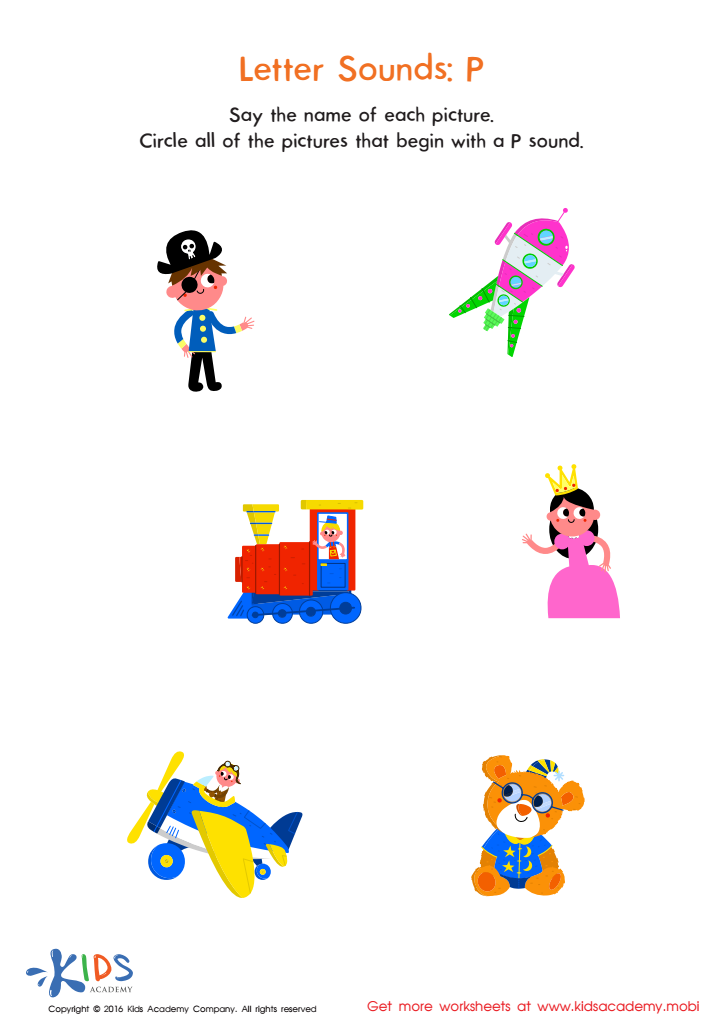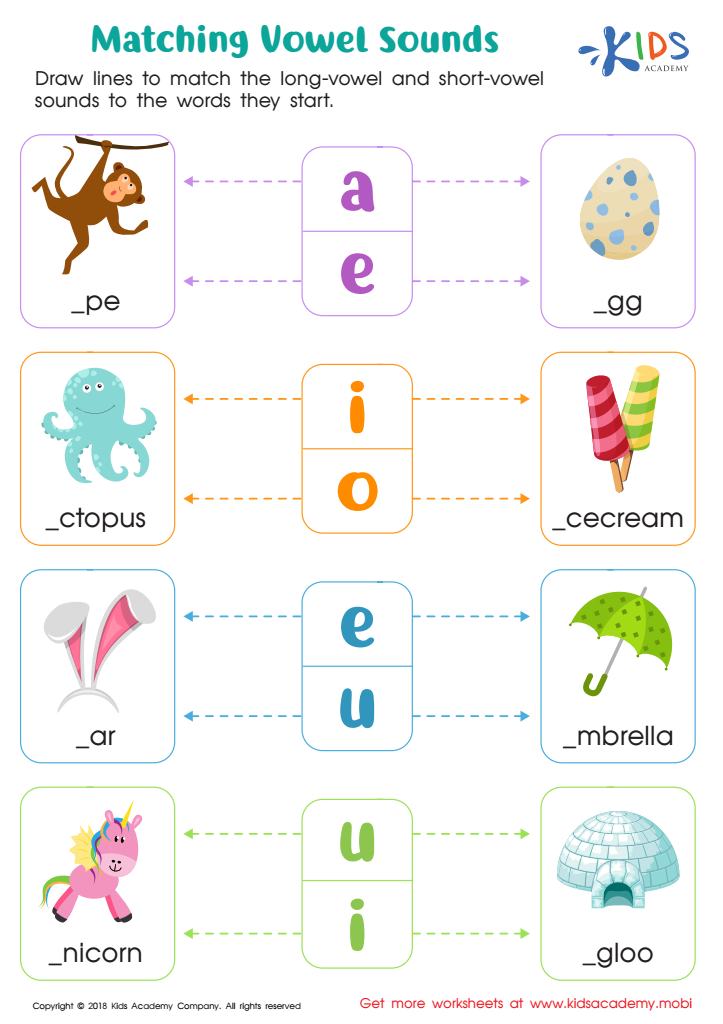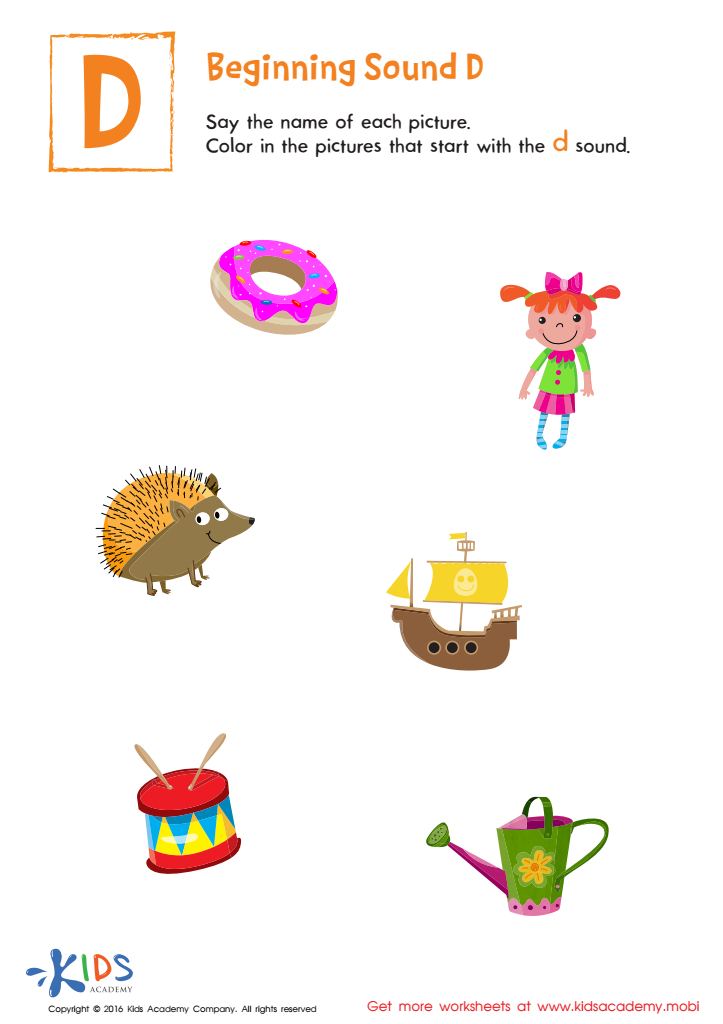Phonics development Normal Worksheets for 4-Year-Olds
3 filtered results
-
From - To
At Kids Academy, we offer carefully crafted phonics development worksheets for 4-year-olds to inspire early literacy. Designed to enhance young minds, our printable activities foster letter recognition, sound matching, and pronunciation skills. These engaging exercises make learning fun, targeting essential reading foundations. Perfect for preschool or at-home practice, kids will enjoy tracing letters, identifying sounds, and connecting them to words. Parents and teachers alike trust our resources to build a solid phonics foundation in young learners, setting the stage for successful reading experiences. Explore our collection to kickstart your child’s phonics journey today!


Letter P Sound Worksheet


Matching Vowel Sounds Worksheet


Beginning Sound D Worksheet
Phonics development is fundamental for 4-year-olds because it lays the groundwork for successful reading and writing skills that will benefit them throughout their academic journey and life. At this age, children are in a critical period for brain development where they are highly receptive to learning sounds and how they correspond to letters and words. Phonics instruction helps them decode new words, an essential skill for reading fluently and understanding text.
By focusing on phonics development, parents and teachers enable young children to recognize letter-sound relationships, boosting their confidence and motivation to read. This early mastery encourages a love for reading and learning, which can translate into better academic performance in various subjects later on. Additionally, phonics instruction aids in vocabulary acquisition and sound discrimination skills, crucial components for effective communication and writing.
Neglecting phonics at an early age can lead to reading difficulties, slow academic progress, and a lack of interest in literacy. Therefore, parents and teachers should prioritize phonics development to ensure that children build a solid foundation in literacy. Early intervention and support can prevent future learning challenges and foster a lifelong appreciation for reading and learning. This proactive approach creates a positive and enriching educational environment for young learners.
 Assign to My Students
Assign to My Students





















